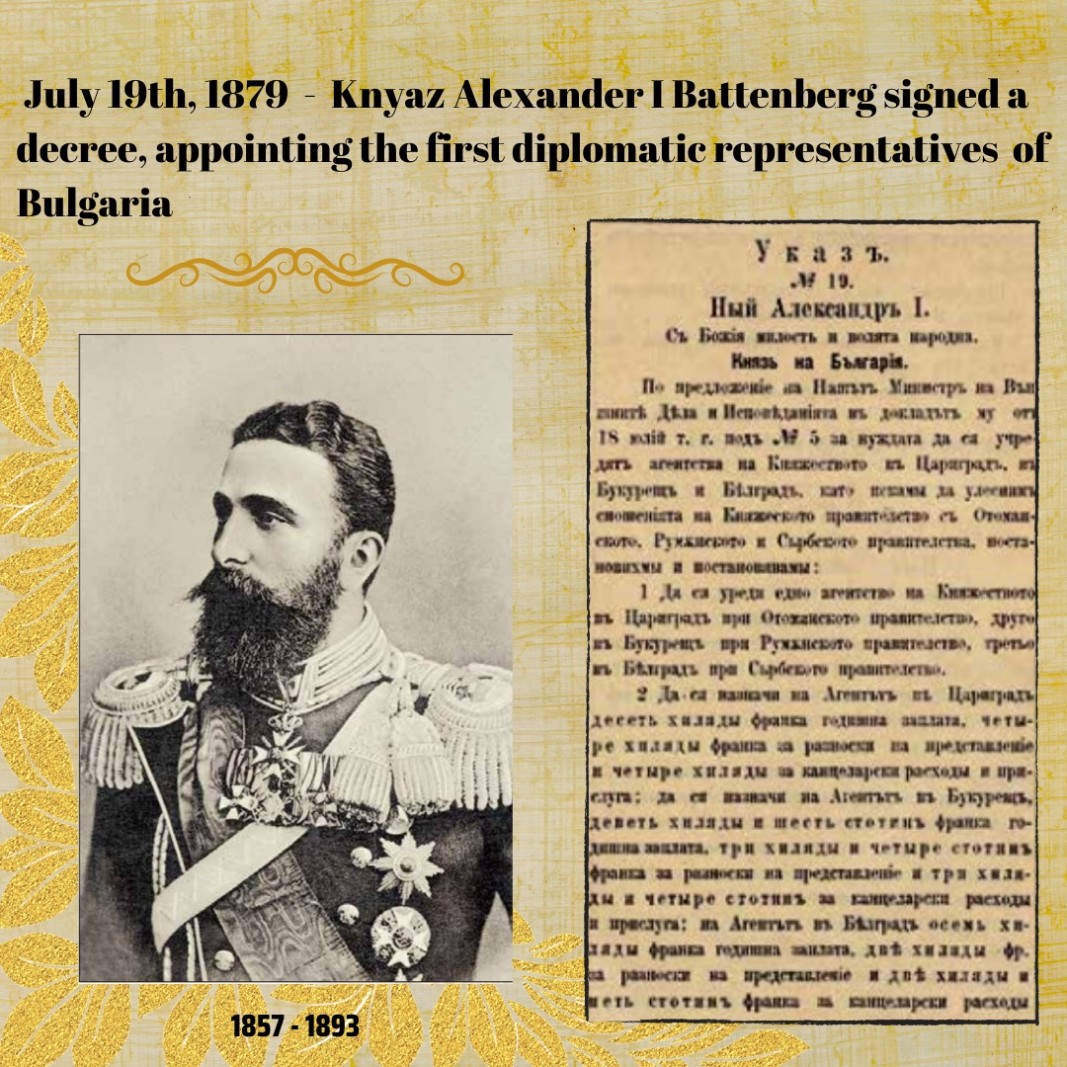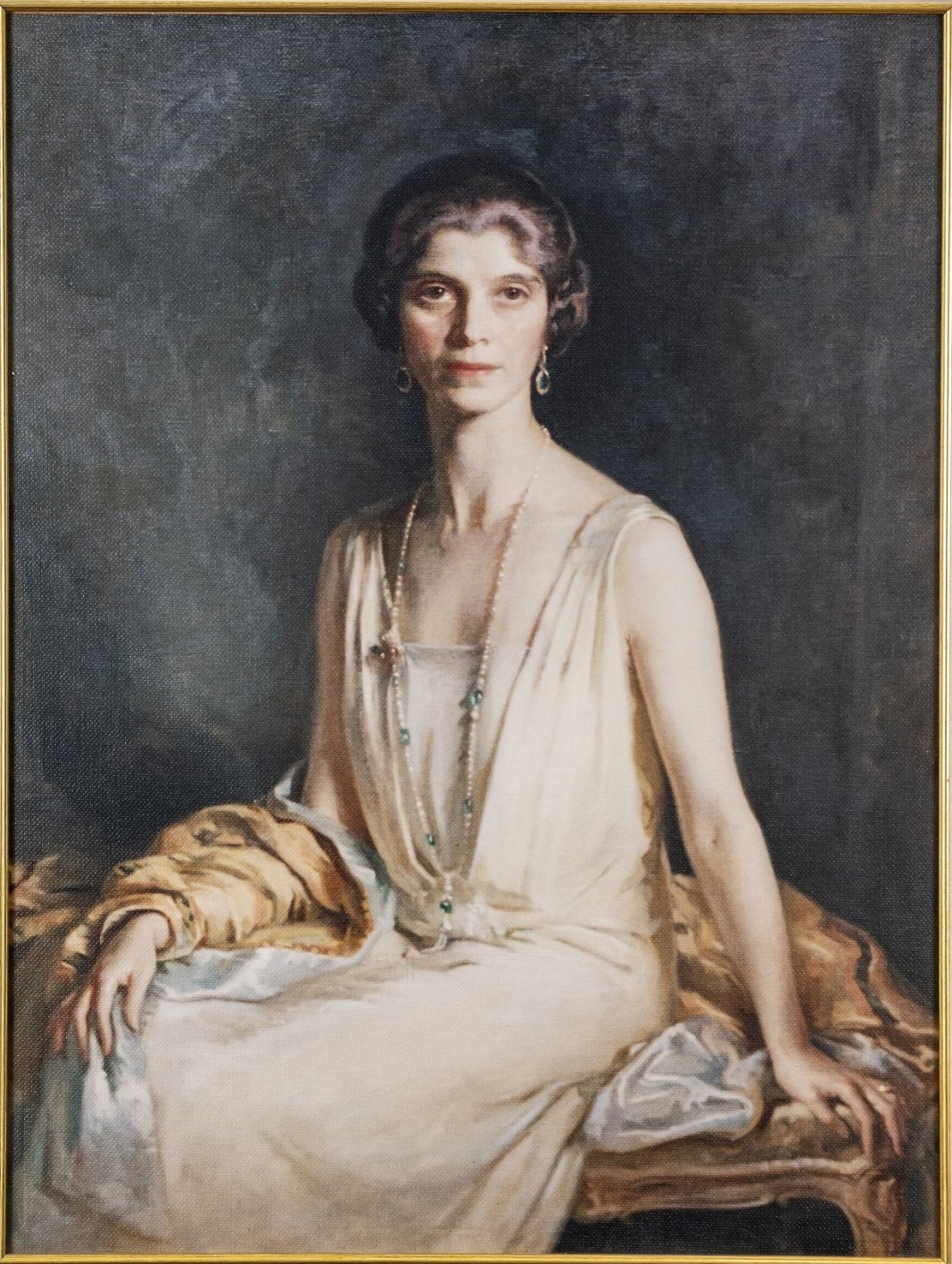Diplomacy is defined as the art and practice of negotiation and conducting dialogues through different measures between states, groups, or people to influence the international system's decisions, events, and behaviors. The word comes from ancient Greece, when envoys of the rulers handed notes and orders on double-leaved wax tablets which they called “diploma”. Today, more than ever, it is clear that diplomacy is so much more than theoretical knowledge. It is “knowledge, skill and foresight”, as the first head of the Diplomatic Institute in this country, Assoc. Prof. Zdravko Popov said some time ago in an interview with Radio Bulgaria.
19 July, 2023 marks 144 years since the establishment of the diplomatic mission in free Bulgaria. It is the day on which we honour all people committed to the “peaceful settlement of conflicts and upholding of the national positions in international relations”, as the President of Bulgaria’s National Assembly Rosen Zhelyazkov described the role of Bulgaria’s diplomats. The date was endorsed by force of a resolution by Foreign Minister Nadezhda Mihaylova on 21 July, 1999.
After the liberation of Bulgaria from Ottoman rule in 1878, and the signing of the peace treaty of San Stefano, Prince Alexander Dondukov-Korsakov set up a so-called office for general affairs and diplomatic relations, as part of the temporary Russian administration in the country. It was later reformed to become a foreign affairs department. Officially, by decree No. 23 from 17 July, 1879, in conformity with the first Bulgarian constitution – the Tarnovo Constitution – a central state institution was established for organizing, administering and pursuing the foreign policy of Bulgaria by way of diplomatic representation, i.e. a Ministry of Foreign Affairs and Denominations, and Marko Balabanov was appointed minister. By a decree issued by Prince Alexander Battenberg on 19 July, 1879, the first Bulgarian diplomatic representatives abroad were selected. The first countries Bulgaria entered into diplomatic relations with that same year were: Russia, Austria-Hungary, France, Germany, Great Britain, Italy, Belgium Serbia, Romania, Turkey.
An important place in Bulgarian diplomacy is occupied by the work of the Permanent Representation of the Republic of Bulgaria to the UN in Geneva the oldest Bulgarian diplomatic representation in the sphere of multilateral inter-state relations. At a time when gender equality was not on the world’s agenda, Bulgaria went down in history with the first female diplomat in the Balkans and in Europe, polyglot and journalist Nadezhda Stanchova (1894-1957), who took part in the peace conferences in Paris and in Genoa and was chargé d'affaires ad interim at the Bulgarian legation in London, and then first secretary at the Bulgarian legation in the US. Nadezhda Stanchova has indubitably made a major contribution to the role of women in diplomacy. 
Besides possession of certain personal qualities, the importance of good professional training and of passing practical skills onto the people working at the Bulgarian missions abroad has, through the years, proven to be essential. At the end of the 19th and the beginning of the 20th century, Bulgaria’s diplomats were mostly trained in France and Austria. “That was, without doubt, connected with the priorities of the country’s foreign policy as a whole,” explains Assoc. Prof. Zdravko Popov.
“It was only after the democratic changes in the country that an independent Bulgarian foreign policy system for training diplomats was considered,” says Assoc. Prof. Zdravko Popov. And in 2003, by a decision of the Council of Ministers, the Foreign Ministry’s Diplomatic Institute was set up – the first “school for diplomats” which is marking its 20th anniversary.
Today, “the foreign policy pursued by Bulgaria is the result of a nationwide coordinated effort, an effort of which the principle “Unity makes strength” holds true in the highest degree,” Bulgaria's Deputy Prime Minister and Foreign Minister Mariya Gabriel said, on the occasion of the day of Bulgarian diplomacy.
More:
Text: Vessela Krasteva
Translated and posted by Milena Daynova
Photos: Ministry of Foreign Affairs, National Assembly
Since 1980, 27 September has been celebrated globally as World Tourism Day, marking the anniversary of the adoption of the UN World Tourism Organization’s charter in 1970. Across Bulgaria, towns and villages host special events, although the local..
The Le tour du canal tolerance cycle tour returns to the Rowing Canal in Bulgaria's second-biggest city Plovdiv. On September 27 at 2:00 pm, the "You also come" Foundation is lending a hand to people with disabilities with a movement festival. The..
The National Museum of Natural History at the Bulgarian Academy of Sciences (BAS) is inviting visitors to Researchers' Night (Night of Scientists) on 26 September. From 17:30 in the museum foyer at 1 Tsar Osvoboditel Boulevard, Professor Zlatozar Boev..
Sofia is hosting the finals of ER Champ 2025 — described by the organisers as the world’s largest international escape room competition . Taking place on..
More than 500 people from across Bulgaria are gathering today in the village of General Todorov, near Petrich, for the national festival “Once Upon a..

+359 2 9336 661
